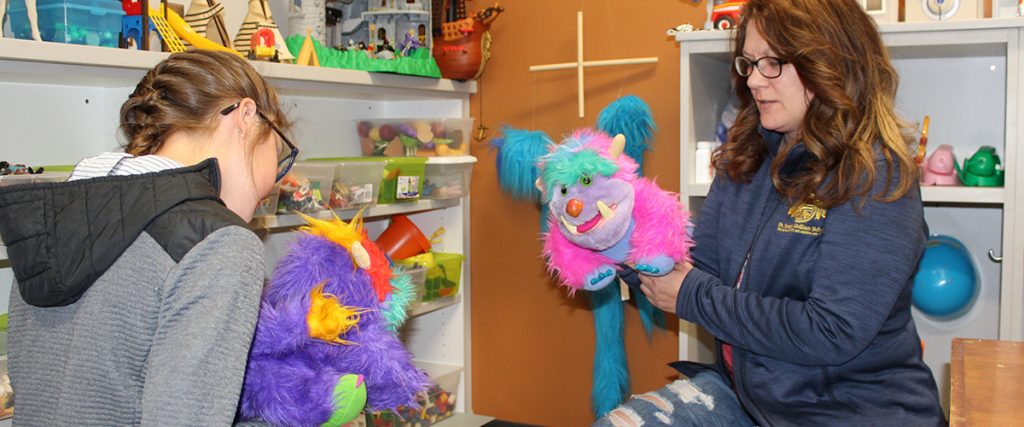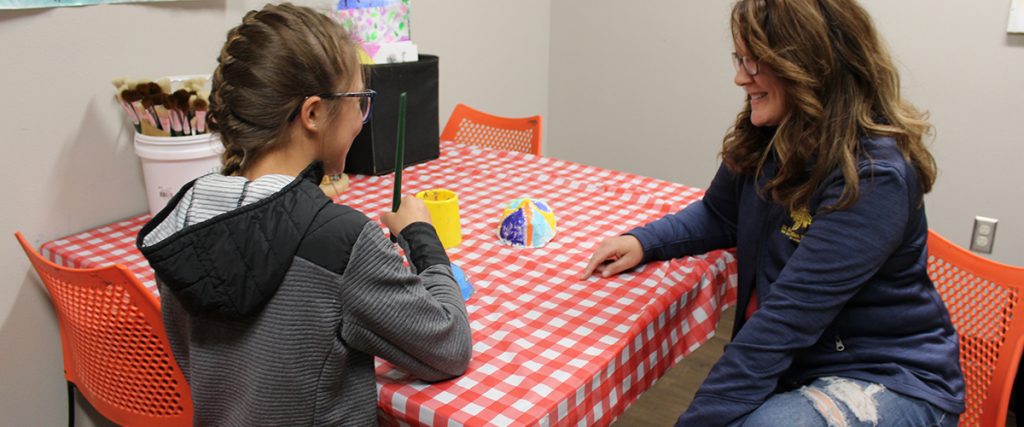Special therapies are a variety of therapy techniques employed by our counselors in their holistic approach to care. In addition, they have the benefit of customized play therapy and art therapy rooms at their access, as well as our more recently added equine therapy program.
Play Therapy

Therapeutic play helps children with social or emotional deficits learn to communicate better, change their behavior, develop problem-solving skills and relate to others in positive ways. It is appropriate for children undergoing or witnessing stressful events in their lives, such as a serious illness or hospitalization, domestic violence, abuse, trauma, a family crisis, or an upsetting change in their environment. Play therapy can help children with academic and social problems, learning disabilities, behavioral disorders, anxiety, depression, grief, or anger, as well as those with attention deficit disorders.
Art Therapy

Art therapy is an integrative mental health approach that enriches the lives of students through active art-making, creative process, applied psychological theory, and human experience within the counseling relationship.
Art therapy is used to improve cognitive and sensorimotor functions, foster self-esteem and self-awareness, cultivate emotional resilience, promote insight, enhance social skills, as well as reduce and resolve conflicts and distress.
Equine Therapy
To the Lakota, a šúŋkawakȟán — horse — is a relative. A four-legged friend and companion that provided transportation, friendship and pride. The horse is revered for its grace and bravery.
Hear Equine Specialist Patty Bourne and Counseling Services Director Robyn Knecht explain Equine Therapy on our Hočȟoka Podcast.
Today, many Lakota people still look to the horse to provide healing from trauma, anxiety, and mental and emotional distress, among others.
Healing from internal or external wounds was the purpose behind launching the equine therapy program at St. Joseph’s Indian School.
Horses live on the north end of campus, creating the opportunity for more students to take part in the equine therapy sessions. Also, the horses’ presence on campus means they can participate in powwow and are available for family camps and visits from campus homes.

